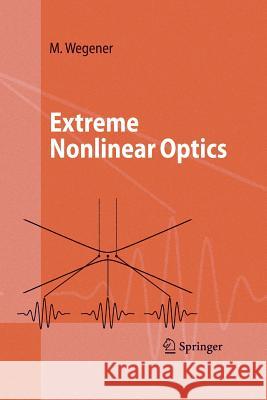Extreme Nonlinear Optics: An Introduction » książka
Extreme Nonlinear Optics: An Introduction
ISBN-13: 9783642060908 / Angielski / Miękka / 2010 / 223 str.
Following the birth of the laser in 1960, the field of "nonlinear optics" rapidly emerged. Today, laser intensities and pulse durations are readily available, for which the concepts and approximations of traditional nonlinear optics no longer apply. In this regime of "extreme nonlinear optics," a large variety of novel and unusual effects arise, for example frequency doubling in inversion symmetric materials or high-harmonic generation in gases, which can lead to attosecond electromagnetic pulses or pulse trains. Other examples of "extreme nonlinear optics" cover diverse areas such as solid-state physics, atomic physics, relativistic free electrons in a vacuum and even the vacuum itself. This book starts with an introduction to the field based primarily on extensions of two famous textbook examples, namely the Lorentz oscillator model and the Drude model. Here the level of sophistication should be accessible to any undergraduate physics student. Many graphical illustrations and examples are given. The following chapters gradually guide the student towards the current "state of the art" and provide a comprehensive overview of the field. Every chapter is accompanied by exercises to deepen the reader's understanding of important topics, with detailed solutions at the end of the book.











